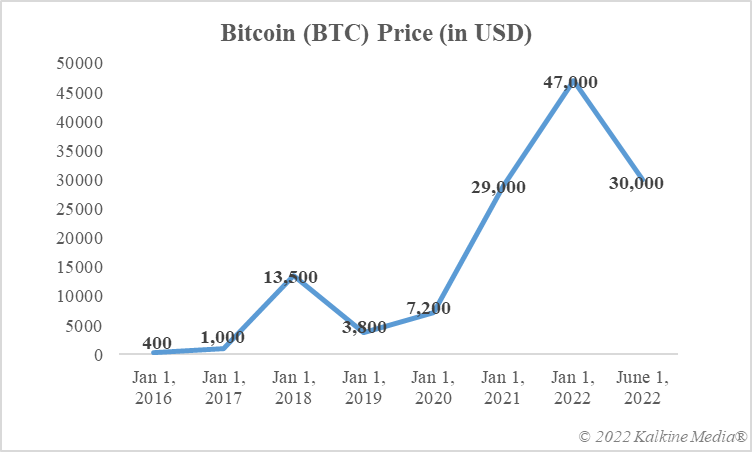Blockchain is a popular technology that promises decentralisation of all aspects related to data. Ethereum, which has Ether (ETH) as its native cryptocurrency, is a major blockchain network with Solana and Cardano as its competitors. All these networks let developers build new decentralised solutions, where record-keeping is distributed widely among peers, meaning no single authority can make decisions.
But in the blockchain space, there is a debate about the extent of the distribution of power among peers. Should all members of the public be allowed to participate, or should entry be restricted? This takes us to the concept of permissioned blockchain networks, where only invited participants are allowed to have a say. Can Ethereum enable such a permissioned arrangement? Let us explore.
Is Ethereum permissionless or permissioned?
‘Mainnet’ is the term ascribed to a fully functional blockchain. Bitcoin has its own mainnet and so do Ethereum and many other blockchains. Ethereum’s mainnet is a public and permissionless network, which means it does not exclude anyone from participating. A transaction can be recorded by any participant, and there is no concept of permissions or privacy. The main cryptocurrency to pay the gas fee is the native ETH token, and it can be mined by those who participate in the Ethereum network’s record-keeping. A majority of cryptocurrency networks are permissionless with distributed powers.
Ethereum, however, also allows the use of its network to build new private blockchains. Inside a private version, restricted access is available to only a few permissioned participants. Ethereum’s enterprise solution provides an option to build and deploy Layer 2 protocols, which can suit the specific blockchain-related needs of any enterprise. The blockchain states this can help add operational efficiency while making the specific network inaccessible to any third-party participant.
Rise of permissioned blockchain
Hyperledger, a project supported by the Linux Foundation and such tech players as IBM and Intel, focuses primarily on permissioned blockchain solutions. Hyperledger Fabric underpins IBM’s enterprise-grade open and distributed platform and comes with ‘advanced privacy controls’. Here, smart contracts with self-executing terms can be deployed with limited participation, in contrast to a permissionless arrangement where unlimited anonymous participants can exercise control.
Cryptocurrencies, including Bitcoin and Ether, have exhibited ultra-volatility in their values, with doubts being raised over how the so-called decentralised set-up, powered by permissionless blockchains, would sustain over the long term. On the other hand, permissioned networks, which add restrictions to the extent of the distribution of control, are considered a better enterprise-level use of blockchain technology, particularly to reduce operational costs.

Data provided by CoinMarketCap.com
Bottom line
Ethereum’s mainnet is an open and permissionless network primarily focused on cryptocurrency records. Permissioned solutions can be added to this mainnet as a Layer 2 network. Separately, Hyperledger Fabric by IBM also provides permissioned blockchain solutions.
Risk Disclosure: Trading in cryptocurrencies involves high risks including the risk of losing some, or all, of your investment amount, and may not be suitable for all investors. Prices of cryptocurrencies are extremely volatile and may be affected by external factors such as financial, regulatory, or political events. The laws that apply to crypto products (and how a particular crypto product is regulated) may change. Before deciding to trade in financial instrument or cryptocurrencies you should be fully informed of the risks and costs associated with trading in the financial markets, carefully consider your investment objectives, level of experience, and risk appetite, and seek professional advice where needed. Kalkine Media cannot and does not represent or guarantee that any of the information/data available here is accurate, reliable, current, complete or appropriate for your needs. Kalkine Media will not accept liability for any loss or damage as a result of your trading or your reliance on the information shared on this website.
Read More: kalkinemedia.com









 Bitcoin
Bitcoin  Ethereum
Ethereum  Tether
Tether  XRP
XRP  Solana
Solana  USDC
USDC  Cardano
Cardano  Dogecoin
Dogecoin  TRON
TRON  Lido Staked Ether
Lido Staked Ether  Wrapped Bitcoin
Wrapped Bitcoin  Pi Network
Pi Network  Chainlink
Chainlink  LEO Token
LEO Token  Stellar
Stellar  Toncoin
Toncoin  Wrapped stETH
Wrapped stETH  USDS
USDS  Hedera
Hedera  Avalanche
Avalanche  Shiba Inu
Shiba Inu  Sui
Sui  Litecoin
Litecoin  Bitcoin Cash
Bitcoin Cash  Polkadot
Polkadot  MANTRA
MANTRA  WETH
WETH  Ethena USDe
Ethena USDe  Bitget Token
Bitget Token  Binance Bridged USDT (BNB Smart Chain)
Binance Bridged USDT (BNB Smart Chain)  Hyperliquid
Hyperliquid  WhiteBIT Coin
WhiteBIT Coin  Wrapped eETH
Wrapped eETH  Monero
Monero  Uniswap
Uniswap  sUSDS
sUSDS  Aptos
Aptos  NEAR Protocol
NEAR Protocol  Dai
Dai  Pepe
Pepe  Internet Computer
Internet Computer  OKB
OKB  Ondo
Ondo  Ethereum Classic
Ethereum Classic  Gate
Gate  Aave
Aave  Coinbase Wrapped BTC
Coinbase Wrapped BTC  Mantle
Mantle  Official Trump
Official Trump